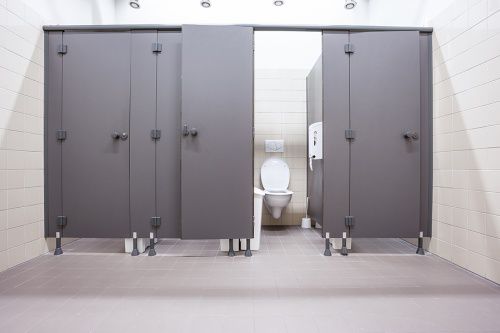North Carolina’s governor is standing firm against the U.S. Justice Department’s claim that it is unlawful and discriminatory to require individuals to use public bathrooms, locker rooms and showers corresponding to their biological sex.
“The right and expectation of privacy in one of the most private areas of our personal lives is now in jeopardy,” said North Carolina Governor Pat McCrory. “We will be reviewing to determine the next steps.”
The governor was responding to a letter from the Justice Department asserting that recent North Carolina legislation is in violation of national civil rights laws.
Known as House Bill 2, the North Carolina law says that in public buildings and schools, people must use the restrooms and locker rooms that align with the biological sex on their birth certificate, rather than their self-perceived “gender identity.”
The letter from the Justice Department does not have a legal effect, but warns the state of risk for lawsuits. North Carolina could lose millions of dollars in federal education funding if it does not repeal the law.
Asking for a response by May 9, the Justice Department told North Carolina that the law must not be implemented. It argued that the legislation violates Title VII of the Civil Rights Act, which prevents discrimination on the basis of sex.
House Bill 2 was approved in March as a means of blocking a Charlotte City Council Ordinance that would have, among other provisions, allowed individuals to use restroom facilities based on their self-perceived “gender identity.”
Supporters of House Bill 2 say that it is a commonsense protection to make distinctions based on sex when it comes to private areas such as restroom and shower facilities.
They have cited safety concerns, warning that the previous city ordinance would allow any biological male into the women’s restrooms, which could lead to instances of assault.
In the weeks following the law’s passage, more than 90 business leaders — including those from Google Ventures, Starbucks, Bank of America, Wells Fargo and Accenture — called for its repeal, saying that it “sanctioned discrimination.”
Entertainers from Bruce Springsteen to Cirque du Soleil cancelled performances in the state, and the NBA threatened to move the 2017 All-Star Game out of Charlotte. San Francisco Mayor Edwin M. Lee issued an order banning federal employees from traveling to North Carolina.
Ryan T. Anderson, the William E. Simon senior research fellow in American principles and public policy at The Heritage Foundation, argued that the backlash over the bill constitutes “‘cultural cronyism’…whereby big business colludes with big government to get its way.”
“In this instance, big business is trying to get the government to impose its cultural values and its definition of sexuality.”
Anderson told CNA in March that anti-discrimination ordinances including sexual orientation and gender identity are being used “so that anyone who does not comply will be accused of discrimination. It is a way to eliminate dissent.”
He also pointed to the widespread opposition for allowing bathroom access based on gender identity. In North Carolina, 69 percent were in favor of repealing the Charlotte ordinance, according to a poll by Survey USA, sponsored by the Civitas Institute. House Bill 2 was passed by sweeping bipartisan votes, with the House 83-25 and the Senate 32-0.
“The American people are in favor of laws that protect their religious freedom and the safety of women and children in restrooms,” Anderson said. “It is the elites that are not. Public officials will need courage not to be bullied into submission — whether it is by corporate elites, media elites or Hollywood elite — to enact policies that preserve the common good.”
Photo credit: Marcel Derweduwen via www.shutterstock.com.

